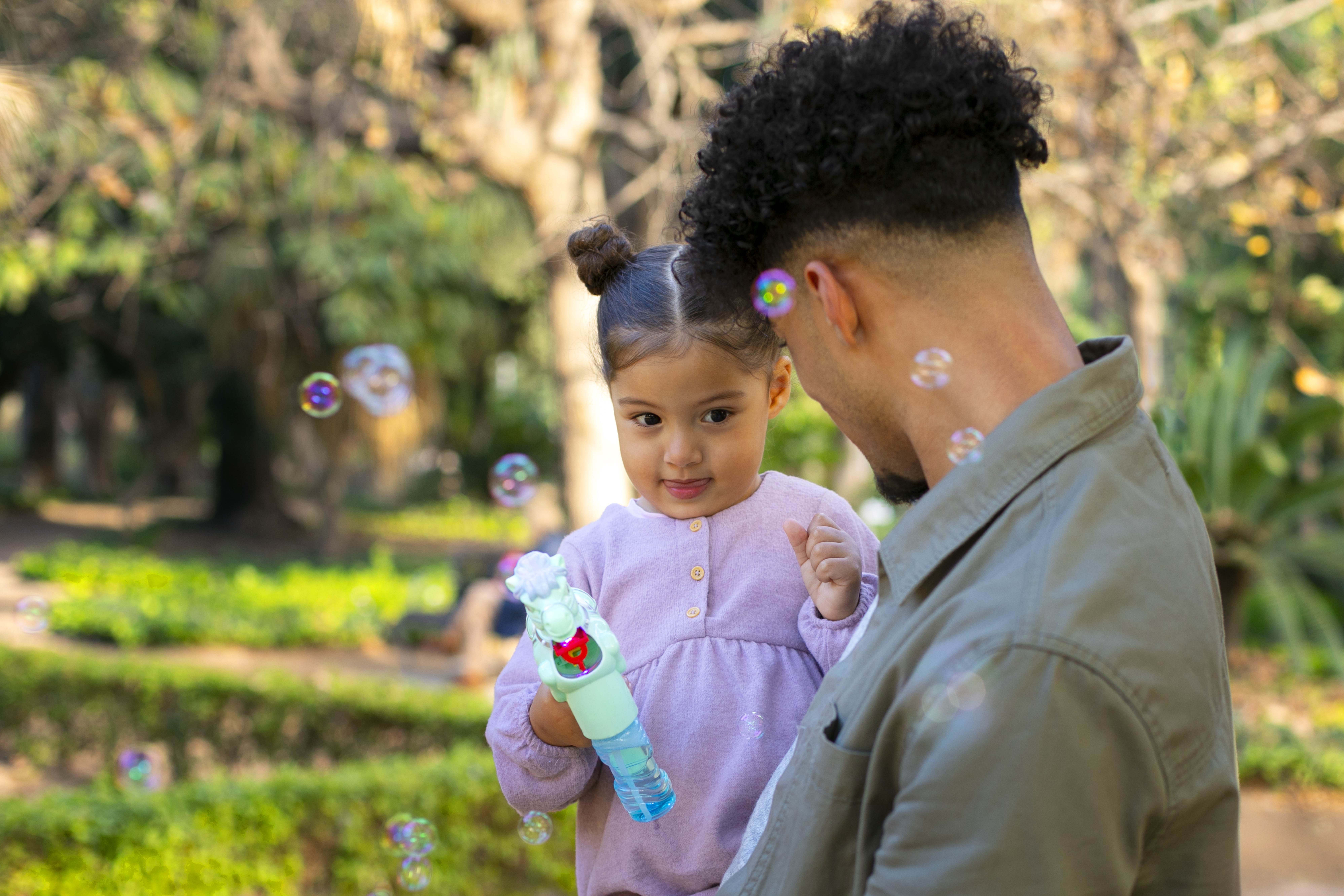 Return to Articles
Return to Articles
10.01.2025
Helping Young Dual Language Learners Thrive

By Luciana Watson, Community Navigator and EFMP Specialist, The Children’s Cabinet
More and more young children are growing up with two or more languages. These dual language learners (DLLs) bring valuable skills and cultural strengths to their families and communities. A DLL is a child who is learning their home language while also learning English, whether at home, in the community, or both.
Being a dual language learner comes with many benefits.
Children who grow up with two languages often show stronger memory, problem-solving skills, and flexible thinking. Maintaining and developing the home language also helps children succeed in learning English, since early literacy skills transfer across languages. Just as important, speaking their home language keeps children connected to their families and cultural traditions, while also preparing them with valuable bilingual skills for future opportunities.
At the same time, dual language learners may face challenges.
Without encouragement, they risk losing their home language, which can weaken family bonds. Families may also wonder if mixing languages or going through quiet phases is a problem, but these are normal parts of learning two languages and not signs of delays.
Families play a critical role in helping their children thrive as dual language learners.
Families can play the most powerful role in helping children thrive as dual language learners. Reading books in the home language, telling family stories, and singing cultural songs all strengthen language skills and family identity. Everyday routines, like cooking, grocery shopping, or driving in the car, are natural opportunities to talk with children in the home language and introduce new words.
Parents can also encourage children to draw, play, or write in either language as a fun way to build expression. Using technology thoughtfully can help too, families can choose music, shows, or apps in the home language while balancing screen time with real conversations.
Most importantly, families should feel proud of their home language and use it daily, since strong skills in one language make it easier for children to learn another.
Guidelines from the American Speech-Language-Hearing Association:
- Start early.Begin using your languages with your child as early as possible; the more input the better. Most multilingual children use their first words by the time they are 1 year old. By age 2, most multilingual children use two-word phrases. Phrases like “my ball” or “more juice” can be expressed in one or more languages.
- Be supportive.Your child may be shy about using their languages. Support them by creating opportunities to use their languages daily and sharing the benefits of multilingualism. The more they practice their languages, the better users they will be.
- Value practice over perfection.Encourage your child to use their languages, even if they make some mistakes. Exposure and practice are needed to build speech-language skills in any language.
- Don’t worry about errors.You may notice that your child may mix grammar rules from time to time. They might even use words from different languages in the same sentence. Don’t worry; this is a normal part of learning and using more than one language at a time.
Dual language learners are not behind; they have unique strengths that help them flourish. By valuing and supporting both languages at home, families give children the confidence to embrace who they are and the tools to succeed in the future.
Resources for Families
- org – A resource from the American Academy of Pediatrics, including a Parent FAQ (frequently asked questions) article about young children learning multiple languages. Learn about the myths and facts!
- Colorín Colorado – A bilingual site with reading tips, activities, and videos for families of DLLs.
- Spread the Word Nevada - Spread the Word Nevada is the state's largest children's literacy nonprofit – click the link to learn more about their Readers in Training program.
- PBS Kids – Games, shows, and learning activities in English and Spanish.
- Unite for Literacy – Free online picture books in many languages.
- Local Libraries – Many libraries have bilingual story times, books, and family events to support language development.
Resources for Early Childhood Providers
If your child attends a child care, preschool or other early learning program, you can share these resources with your child’s teacher to help them support you and your child.
- Head Start Early Childhood Learning & Knowledge Center (ECLKC) – Dual Language Learners, including the Policy Statement on Supporting the Development of Children Who Are Dual Language Learners in Early Childhood Programs.
- National Association for the Education of Young Children – Welcoming and Supporting Dual Language Learners
- Zero to Three – Five Ways to Support Dual Language Learning in Early Childhood Education Programs






